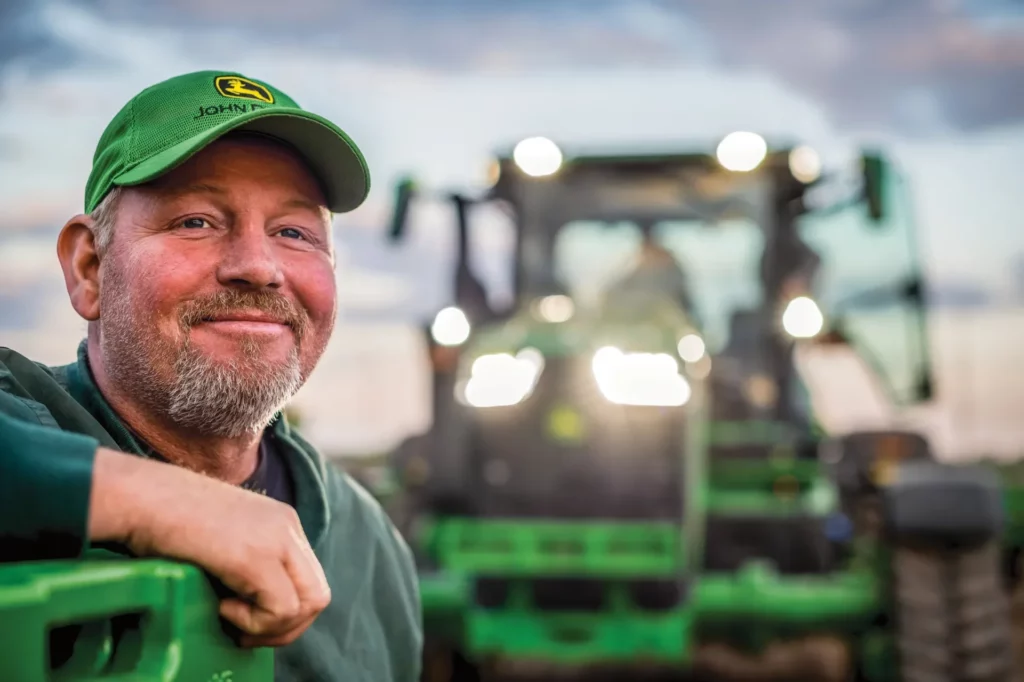 Floods. Droughts. Pandemics. Extreme temperatures. Wind. Economic uncertainty. Isolation.
Floods. Droughts. Pandemics. Extreme temperatures. Wind. Economic uncertainty. Isolation.
These are just some of the things that are affecting US farmers and ranchers today. Between the need to keep food on their families' table and the need to feed a growing population, farmers and ranchers face numerous stressors and pressures. Producers are also affected by fluctuating markets, trade wars, and extreme weather – none of which an individual producer can control. Not many occupations face this much uncertainty. This can cause feelings of isolation that compound the impact of daily stressors, pressures, or underlying mental health challenges.
Living in rural communities can also make it difficult for producers and their families to receive proper support when they’re experiencing extreme levels of stress, anxiety, depression, etc. They don’t always have “easy” access to healthcare facilities or mental health services. The good news is, we can all be part of the solution. And it’s not as complicated as we think.
"The best way we can support someone...is simply by being there." - Lena Aburdene Derhally, MS, LPC
Josie Rudolphi, professor of Agricultural Safety and Health at the University of Illinois, conducted a survey of 300 farmers within three counties in central Wisconsin. The survey asked who these producers wanted to receive information from and how they prefer it to be delivered. Of the 160 survey respondents, Dr. Rudolphi found that producers would be more receptive to receiving information from medical professionals as well as from family and friends delivered via newspapers, magazines, and through face-to-face communication (Mental Health Information in Rural Areas is Best Delivered Face-To-Face, from Family and Friends, Study Shows).
Lena Aburdene Derhally, MS, LPC, says it best, “The best way we can support someone … is simply by being there.”
The following are ways you can be there for others:
-
- Keep The Door Open – let them know that you’ll be there for them whenever they need you. This way, they won’t feel alone.
- Avoid Silver Linings – don’t say things like, “Everything happens for a reason,” or “There’s light at the end of the tunnel.” Don’t try to fix the situation with words.
- Ask What You Can Do – simply asking, “What can I do for you,” or, “Is there anything I can do to help,” can help others feel less lonely. Asking these questions gives them the opportunity to express themselves.
- Just Be There – sometimes having company is all someone really needs. Having that extra person there may be just the thing they need to keep them going.
- Empathize With Their Situation – although not always easy, try to imagine yourself in a similar situation. How would you feel? What would you want someone to do for you?
- Be Compassionate – understand that everyone has bad days. It’s important to understand and realize that others experience hard times just like you do.
- Listen – listening plays a huge part in being there for someone. Don’t speak. Just listen. Let them feel heard. It’s not going to make all of their problems go away, but it may help them feel better.
- Let Them Know They’re Doing a Good Job – hearing things like, “You’re doing a good job,” or “Keep up the good work,” can really go a long way.
Working in production agriculture isn’t only physically demanding, but mentally demanding as well. Bringing awareness to the challenges that farmers and ranchers face is vital to build compassion, empathy, and understanding. Be patient and understanding when interacting with producers. It’s time to break the stigma of mental health in rural America. Start incorporating these tips today and be part of the change.
Farm Aid Hotline: 1-800-FARM-AID (327-6243) Rural Response Hotline: 1-800-464-0258
Helpful Videos: Dr. Josie Rudolphi at the 2019 Farm and Ranch Conference